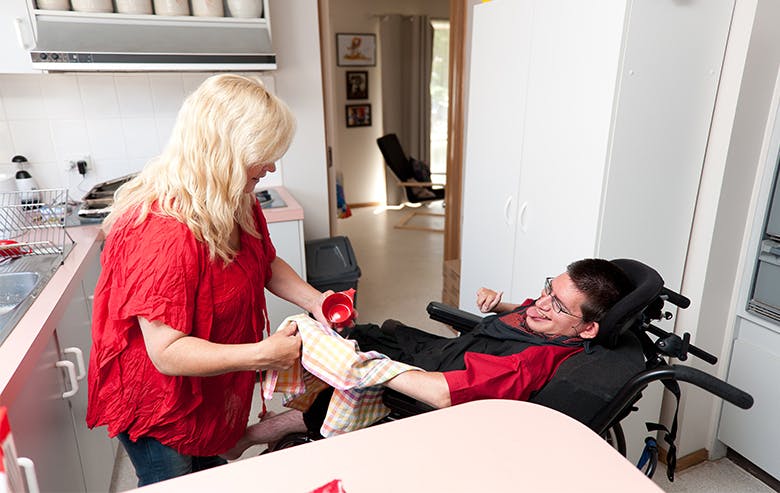
What is Supported Independent Living (SIL)?
Navigating the process of accessing housing through NDIS funding can be confusing. This article explains one of the forms of funding associated with accommodation, known as Supported Independent Living, or SIL.
Supported Independent Living (SIL) funding pays for the support workers to support the NDIS participant to live independently in their home.
SIL funding is also provided to people who live in Specialist Disability Accommodation (SDA).
SDA is a home that is specifically designed to support people with disability through a shared supported accommodation arrangement.
What does SIL funding cover?
SIL covers support for:
- personal care needs (i.e. dressing, showering, toileting)
- participating in activities in the household, and
- managing household tasks like preparing meals.
The NDIS has three levels of SIL funding. They are:
- Lower needs: where the participant requires regular supervision of living arrangements
- Standard needs: where the participant requires 24-hour active assistance with most daily tasks, and
- Higher needs: where the participant requires continual and more complex active assistance.
What does SIL not cover?
SIL does not include rent, board and lodging or other day-to-day living expenses such as food and activities. It also does not include the capital costs associated with a participant’s accommodation such. It also does not include utilities charges such as gas, water, electricity. (Source: NDIA Price Guide)
SIL and SDA
If a participant is eligible for SDA funding (funding for Specialist Disability Accommodation), then they automatically receive SIL funding as well.
When a participant is living in a SDA home, the SIL provider for that home provides a quote based on the participant’s support needs for each day of the week. SIL providers develop this quote based on a detailed template (called a SIL Tool) which was developed by the NDIA. The quote then informs SIL funding the participant receives from the NDIS.
Want to learn more about Housing in the NDIS? Download our free guide, or contact us.
If you are currently looking for accommodation then visit our current vacancies page.